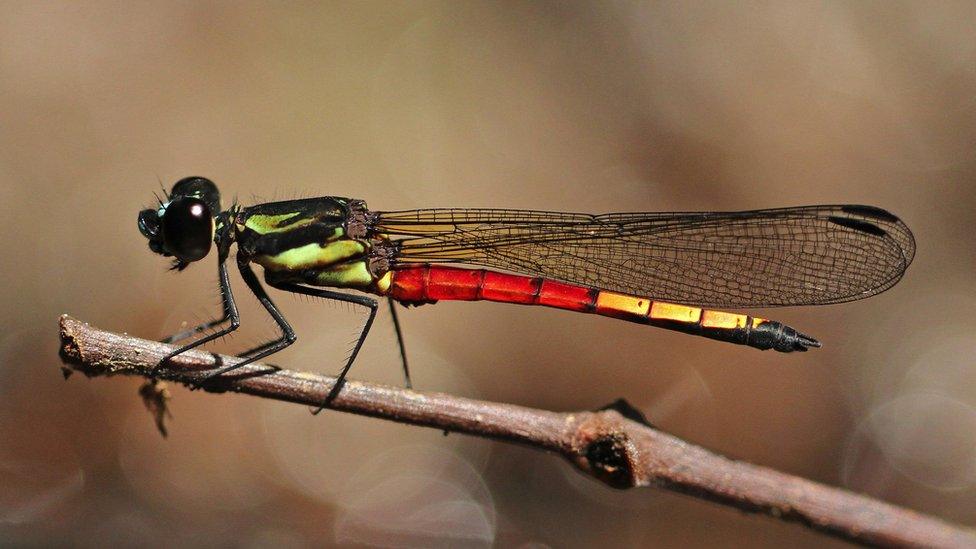Dragonflies thriving at newest nature 'hotspot'
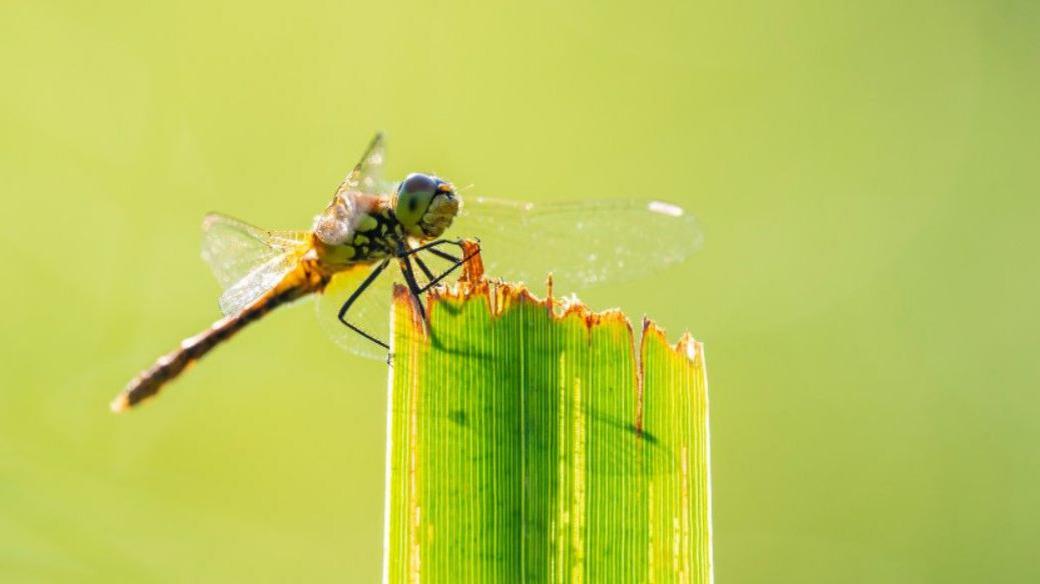
Dragonflies are thriving at the Cambridgeshire reserve
- Published
A National Trust nature reserve has been named the UK's newest dragonfly hotspot, a title awarded by the British Dragonfly Society.
Wicken Fen National Nature Reserve near Ely, in Cambridgeshire, has been recognised for its ongoing conservation efforts to create ideal conditions for the ancient, winged insects to thrive.
The reserve is home to 22 of the UK's 57 species of dragonfly, including the rare Norfolk Hawker, external.
Dave Stanforth, partnerships officer for the National Trust at Wicken Fen, said "careful rotation cutting and ditch management... had created the optimal habitat for these fascinating insects".
"Dragonflies and damselflies are absolutely fascinating insects - their ancestors existed more than 300 million years ago," said Mr Stanforth.
"They depend on water in all stages of their lifecycle and all need water bodies to breed.
"Eggs are laid by adults either directly into water or on to plant material - on or at - the water's edge."
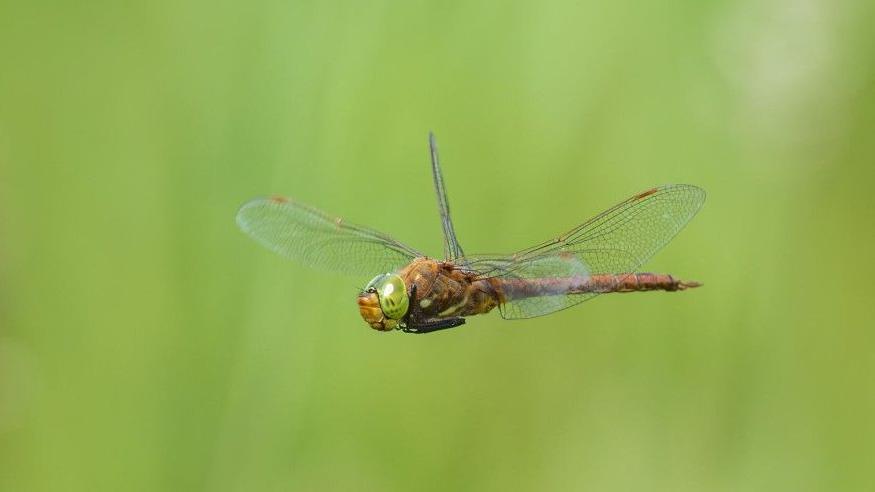
The Norfolk Hawker is listed as endangered in the Odonata (predatory and flying insects) Red Data List for Great Britain
He said at the larval stage most species spend between one and two years underwater "before developed final-stage larvae climb out of the water on to vegetation for a final moult when the adult dragonfly or damselfly emerges".
As the creatures rely on a watery habitat to provide food, he added: "With its plethora of ponds and watercourses, this means that Wicken Fen is an ideal place for them."
The reserve, which marked 125 years of being cared for by trust in May, is now one of 23 dragonfly hotspots, external across the UK.
However, it is the first time a National Trust reserve has been given the "hotspot" designation.
Many of the works which have contributed to the hotspot title form part of the larger Wider Wicken Fen Vision, external, a 100-year project launched in 1999 to create an even more diverse landscape for wildlife and people in this remaining stretch of fenland.
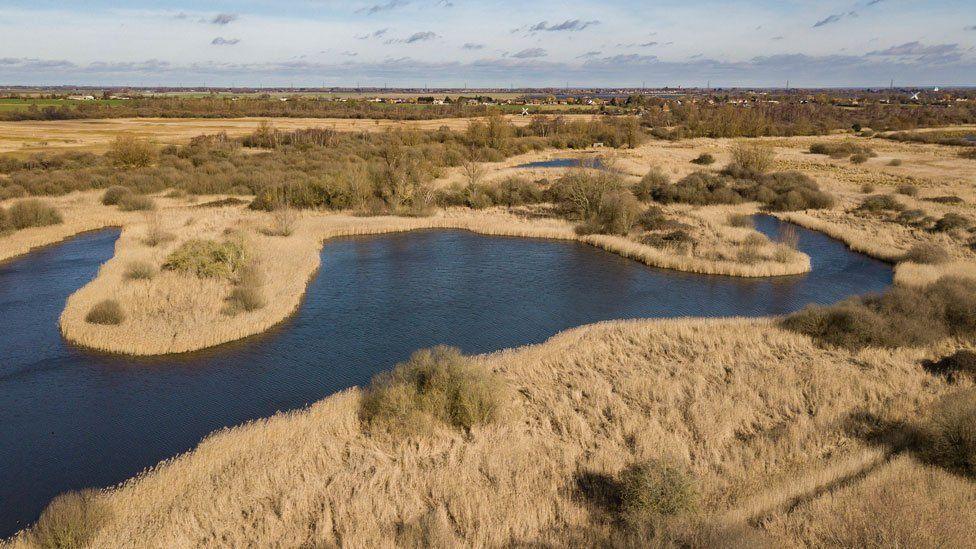
At least 70,000 people visit Wicken Fen each year
Tim Coleshaw, chair of trustees for the British Dragonfly Society, said: "We hope this new hotspot and their passionate staff and volunteer team will help inspire even more people to love these fantastic insects and to get involved in monitoring and conserving them."
The National Trust said in line with its new designation it would be looking for more volunteers to work at Wicken Fen as wildlife guides.
Follow Cambridgeshire news on Facebook, external, Instagram, external and X, external. Got a story? Email eastofenglandnews@bbc.co.uk, external or WhatsApp us on 0800 169 1830
Related topics
- Published27 June 2024

- Published1 May 2024
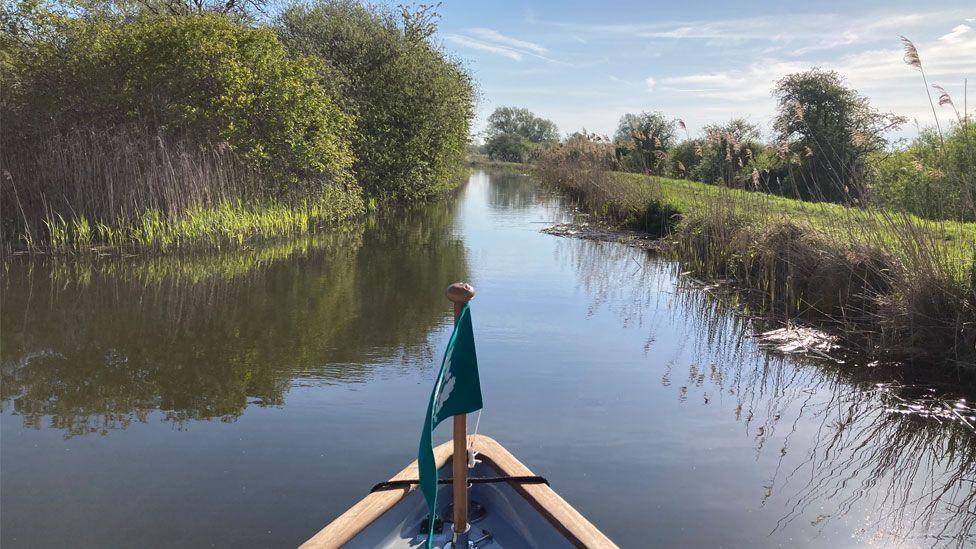
- Published15 December 2023
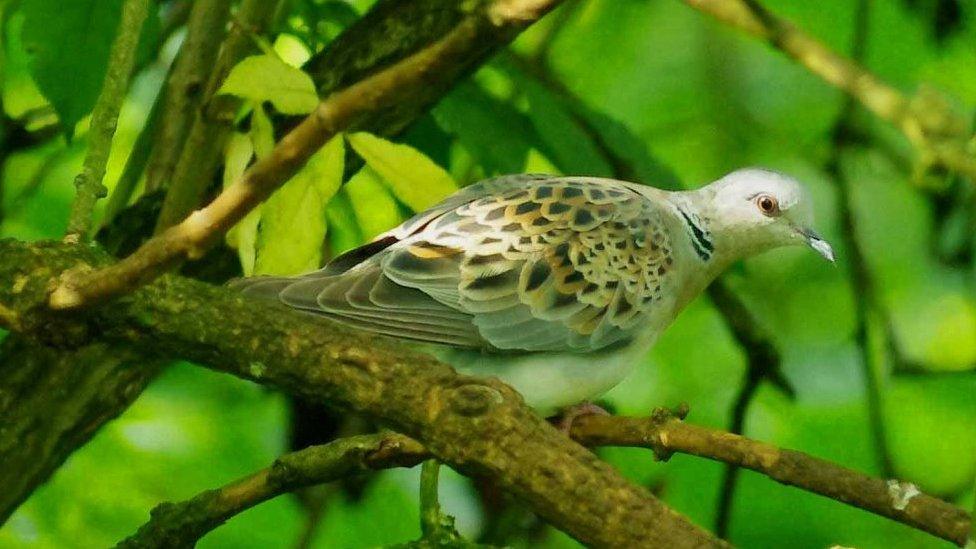
- Published9 December 2021
